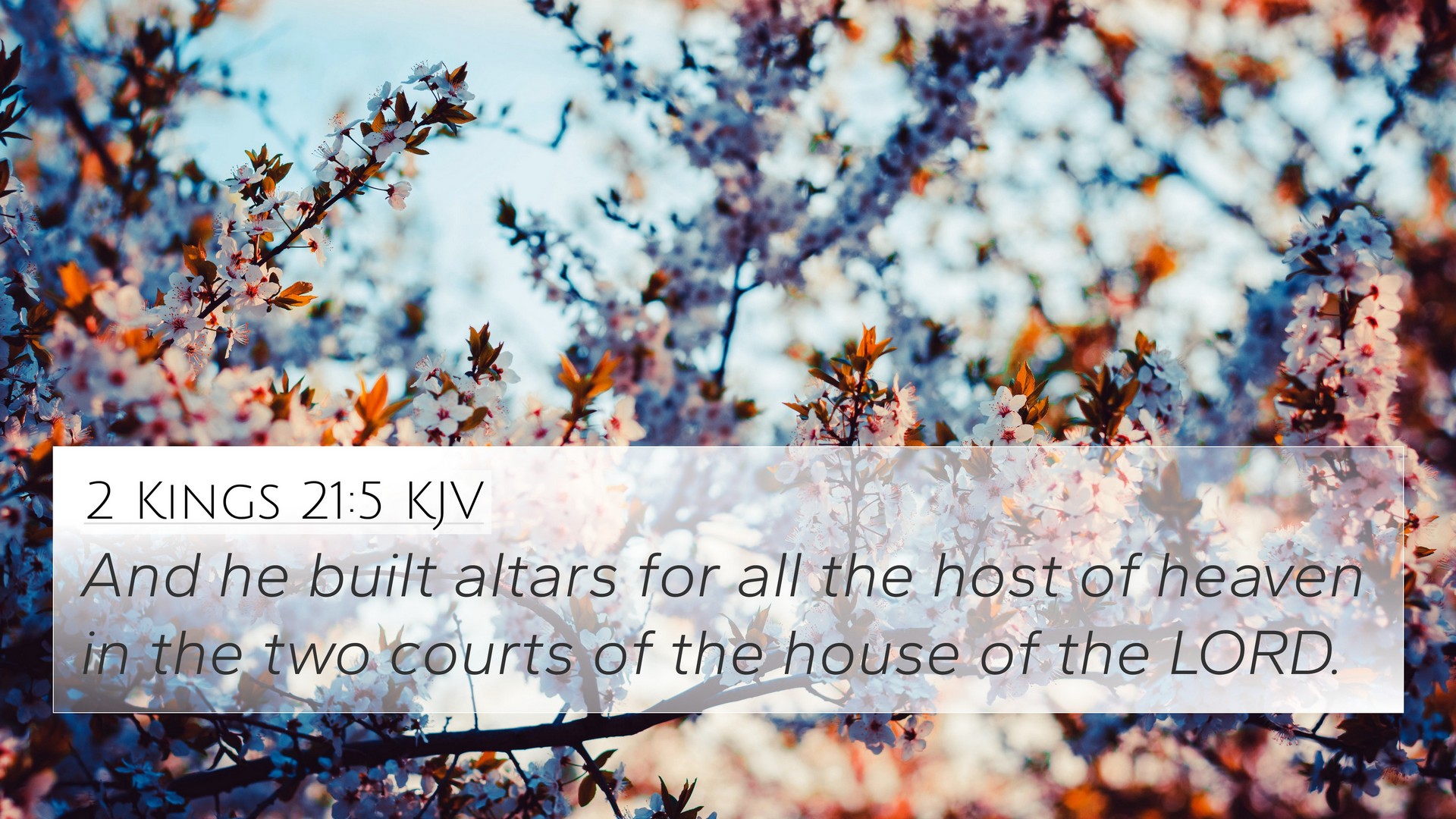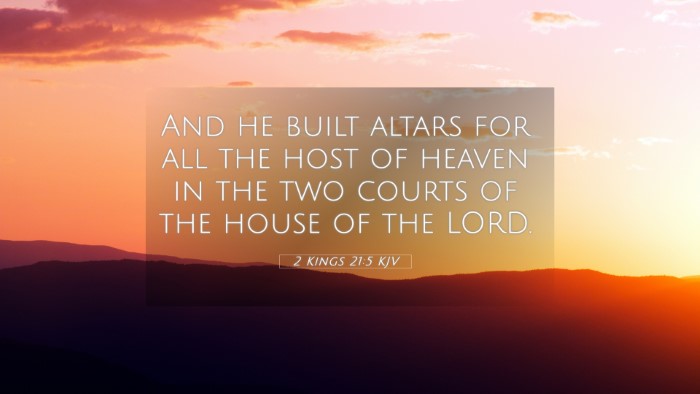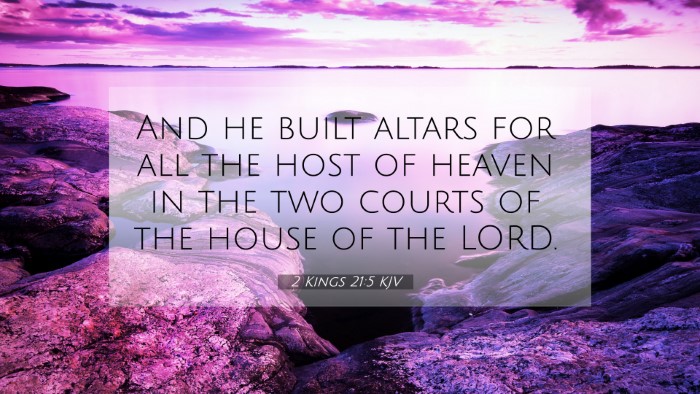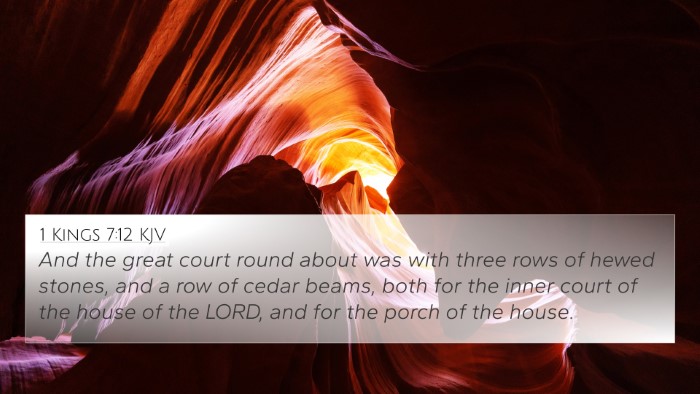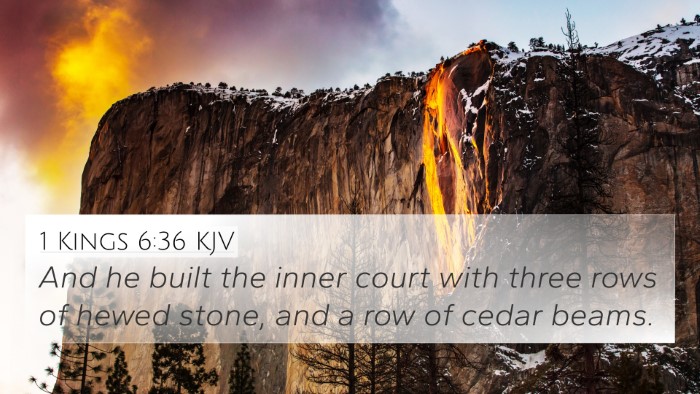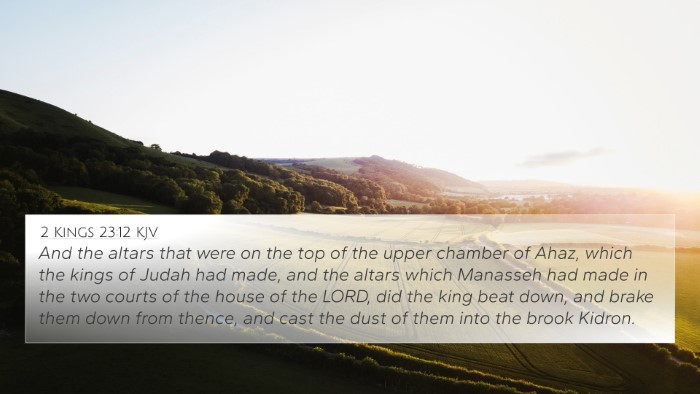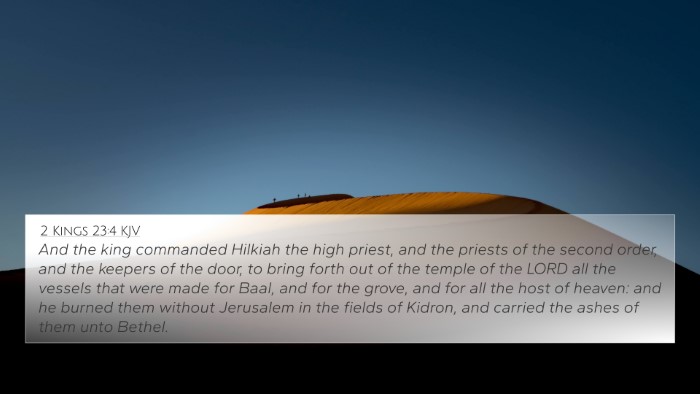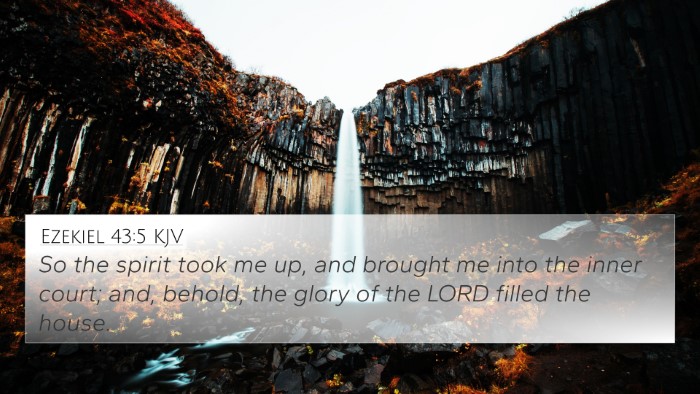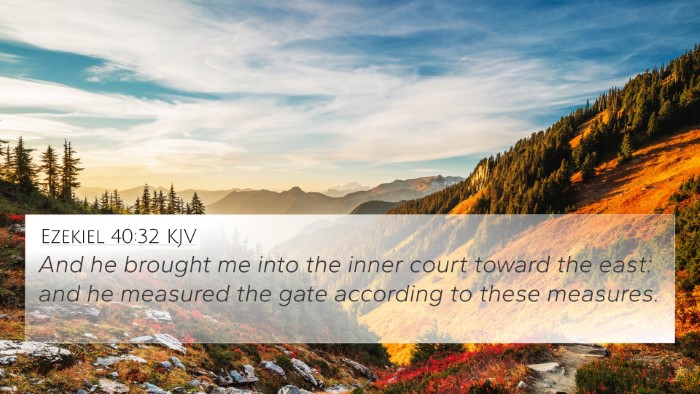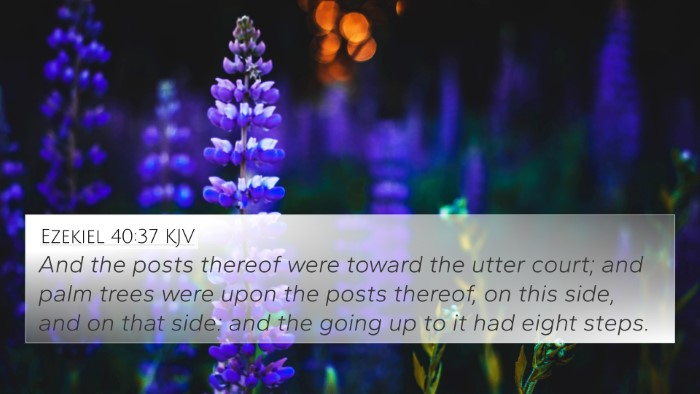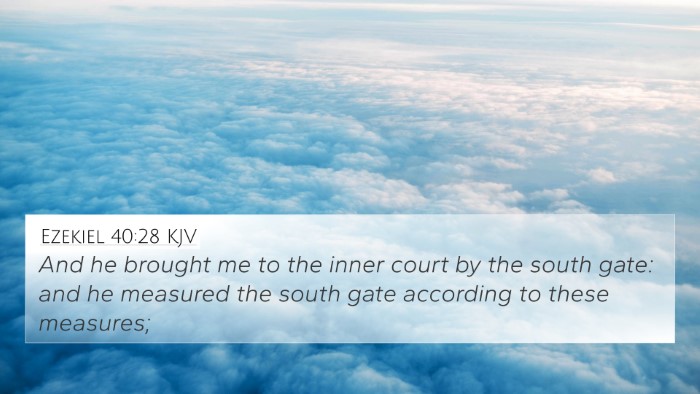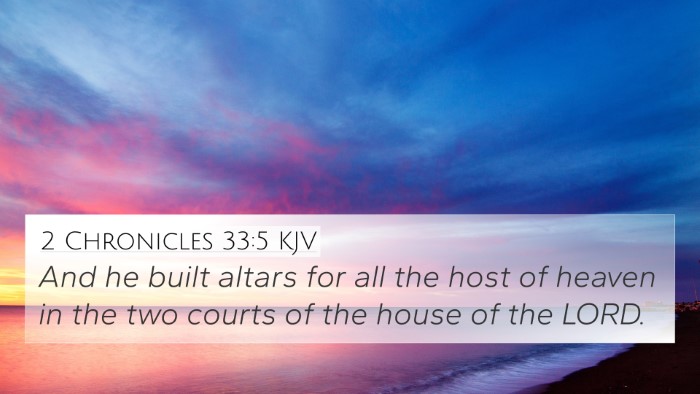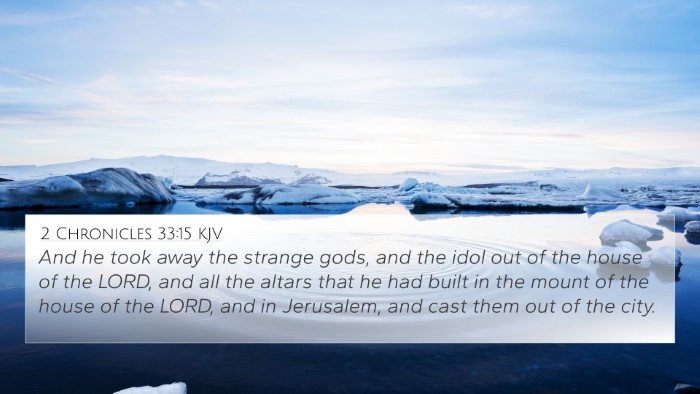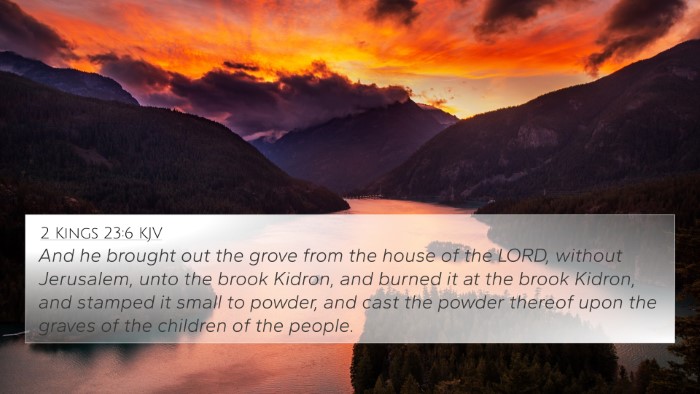Understanding 2 Kings 21:5
Verse: "And he built altars for all the host of heaven in the two courts of the house of the Lord."
The verse addresses the actions of King Manasseh of Judah, who engaged in practices that were contrary to the teachings of Yahweh.
Commentary Insights
This passage underscores several key themes regarding idolatry, disobedience, and the consequences of turning away from God's laws.
Idolatry and Its Consequences
According to Matthew Henry's Commentary, this verse highlights Manasseh's complete disregard for the worship of the true God. By building altars for the "host of heaven," he not only defied God's commandments but also led the nation into deeper sin and rebellion.
The Nature of Worship
Albert Barnes emphasizes that the phrase "the house of the Lord" indicates the seriousness of Manasseh's actions. He corrupted the very place designated for the worship of Yahweh by introducing pagan worship practices, which was a blatant violation of the covenantal commands laid out in the Law.
Historical Context
Adam Clarke provides a historical perspective, noting that Manasseh's reign was marked by a significant turning away from true worship. This action was not merely a personal failing but had national implications, as it encouraged the people of Judah to follow suit and engage in similar idolatrous practices.
Spiritual Blindness
The commentary suggests that this time was marked by spiritual blindness within the nation. Manasseh's actions illustrate how a leader's rebellion can lead an entire people away from righteousness.
The Divine Response
Moreover, Henry notes that such acts provoke God's anger, as they violate His holiness. The history of Israel reveals a pattern where idolatry inevitably leads to consequences, including divine judgment and deportation.
Bible Cross-References
In studying this verse, several other Scriptures come to mind that provide deeper insight into its meaning:
- Deuteronomy 12:2-3 - God commands the destruction of all forms of pagan worship.
- 2 Kings 21:16 - Talks about the bloodshed and sins committed by Manasseh, further detailing the gravity of his disobedience.
- 2 Chronicles 33:6 - Discusses the extent of Manasseh's idolatry, including the practice of child sacrifice.
- Jeremiah 7:31 - Refers to the abominations performed in the valley of Hinnom, similar to what Manasseh is accused of.
- Isaiah 1:4 - Highlights the creation of a sinful nation, which can be traced back to kings like Manasseh.
- Ezekiel 8:16-18 - Shows the depth of depravity in the worship practices occurring in the temple.
- Romans 1:25 - Discusses the idea of exchanging the truth of God for a lie, resonating with Manasseh's actions.
Thematic Connections
This verse can be explored through various themes in Scripture, linking it to broader narratives concerning idolatry, apostasy, and divine punishment:
- Idolatry and Apostasy: This theme runs throughout the Bible and can be examined in the context of Exodus 20:3-6.
- The Role of Leaders: The influence of a leader on a nation’s spiritual condition is seen in scriptures like 1 Kings 12:28.
- God's Judgment: The consequences of turning from God, illustrated in Amos 2:4-5, resonate throughout.
Conclusion
2 Kings 21:5 serves as a poignant reminder of the dangers of idolatry and the profound impact of leadership on national faith. The actions of Manasseh reflect the recurring Biblical narrative of betrayal against God, leading to dire consequences, with multiple cross-references enhancing our understanding of this critical passage.
Resources for Further Study
For those interested in diving deeper into Bible studies and understanding cross-referencing:
- Utilize a Bible concordance to find related scriptures.
- Engage with a cross-reference Bible study to uncover thematic connections.
- Explore comprehensive Bible cross-reference materials for in-depth analysis.
